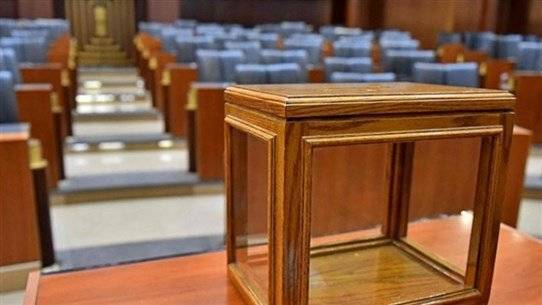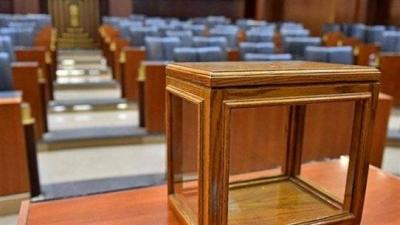The invitation from Speaker of the House Nabih Berri to a session to elect a president today came amidst a decline in interest in the governmental file, which saw a significant drop in optimism yesterday following emerging indicators confirming new conditions that will delay its formation. There is a firm belief among all that the Parliament will not elect a new president today. However, we are facing an important test to outline the trends of the political and constitutional impasse related to this entitlement, marking the first rehearsal for intentions, quorum, alliances, and candidates. What is the background of this invitation and the surrounding circumstances?
The invitation was the first step by the Speaker to refute the accusation of obstructing the election against him and a message to the Christian forces, particularly those accusing him of attempts to weaken the position, responding to Patriarch Beshara al-Rahi, who said in last Sunday’s sermon that "postponing the election of the president undermines the role of Christians in general and the Maronites in particular." It also aims to put the Christian forces, which accuse others of targeting this position, under public scrutiny to emphasize that their disagreements are among the primary reasons hindering the election of a new president.
Leading up to today’s session, several facts emerged:
Firstly, securing the quorum for the session (two-thirds) is a weapon possessed by the key parties in both axes, giving each the ability to obstruct, and no party can bring in the necessary number without the other. Hezbollah, Amal Movement, and the Sunni MPs in the Consultative Meeting (35 MPs), along with the Free Patriotic Movement and the Armenian Bloc (21 MPs), the Marada Party (4 MPs), and some independent MPs total 62 MPs, compared to 66 MPs from the Forces (19), the Kataeb (4), the "Renewal" bloc (4), "A National Project for the Human" (2), the "Democratic Gathering" (9 MPs), the Change MPs, and Sidon MPs (16 MPs), and independent Christian MPs (12).
Secondly, if the quorum is secured, it is impossible to elect a president in the first round, where the candidate needs 86 votes, a number that is not available. In the second round, the candidate needs 65 votes, and in this case, parliamentary sources expect some MPs to withdraw, disrupting the quorum to avoid any surprises that could upend the situation.
Thirdly, the motion that will be witnessed in the session, the manner it is conducted, and its results will lead to a flurry of consultations within each team to organize ranks or a solid conviction that electoral rounds, no matter how long they last, will not lead to the election of a president except within a consensus framework; otherwise, a vacuum will be the alternative while awaiting external understandings.
Before the session, parliamentary blocs held marathon meetings, the most notable of which were those convened by the MPs of "the Change Forces," "Independents," and "Old Future," who were the first to venture into the season of discussing the criteria for the next president without result. The meetings aimed to reach common understandings among the forces, but the MPs did not settle on a unified position. The night before last witnessed a meeting at the Kataeb House in Sayfi, which included Kataeb MPs and "Change" alongside independent MPs, notably Neemat Afram, resulting in more confusion and an inability to agree on a name. Prior to these meetings, MP Michel Moawad took it upon himself to market his name through some news outlets in his attempts to impose his name as a viable choice on the table with "allies," but the "Change" MPs who convened at the "Red Line" center disagreed on describing Moawad as either an "ally or a candidate." MP Mark Doue summarized the "Change" options with former ministers Ziad Baroud and Nassif Hitti, in addition to constitutional expert Salah Hnein. His colleague, Wadah Al-Saad, refused to enter into names, without denying the existence of multiple lists. A third MP referenced a list including Moawad, Ziad Baroud, and Salah Hnein, while others denied all claims, discussing a "small list" featuring Neemat Afram.
As for the atmosphere among the Sunni MPs, MP Hassan Murad described it as "scattered," especially amid a lack of circumstances conducive to agreeing on a specific name due to the absence of criteria.
For his part, the head of the Free Patriotic Movement, Gebran Bassil, confirmed participation in the presidential election session at the House of Representatives, stating, "We will vote with a blank paper, as we do not have a name for the presidency, but we have a different paper regarding the presidential elections that we will present next week." Bassil's comments came during a press conference regarding the prosecution of MP Charbel Maroun, questioning, "Is it permissible to prosecute in this way a deputy who enjoys parliamentary immunity?" He said, "According to the constitution, if the President of the Republic is insulted, the public prosecution moves automatically, but after three years of insults against the President, we haven’t seen any judge acting in this direction; today we see the summoning of a deputy just for expressing his opinion." Bassil confirmed that "Judge Suhail Aboud assured the Strong Lebanon Bloc delegation of the injustice of the detainees and confirmed the continuation of the issue of the alternative judge, and now he is evading," noting that "he practices functional corruption for refusing to perform his duties." He reiterated, "We are all Charbel Maroun, and the matter has become serious. Whoever wants to hit him hits all of us; anyone who wants to complain about him should complain about all of us together because we adopt what he said."




